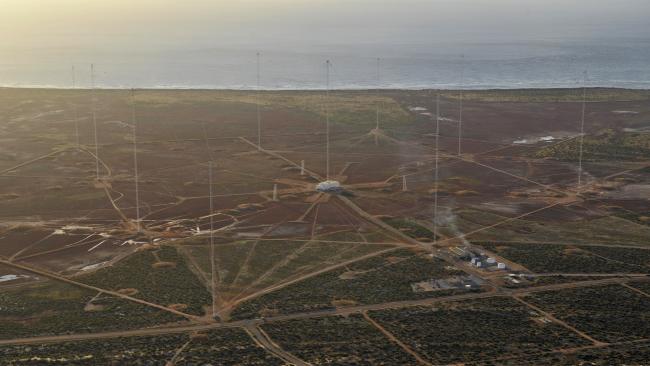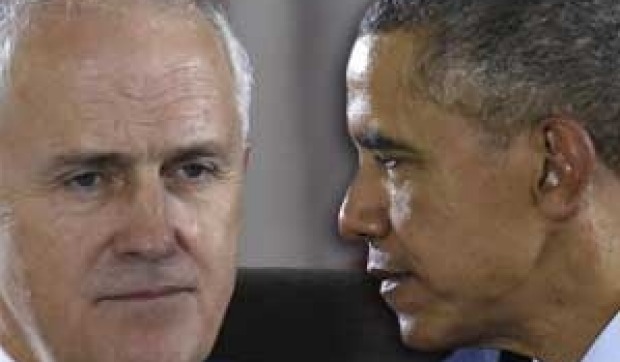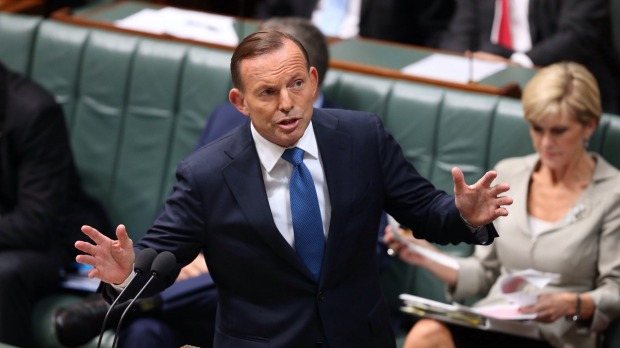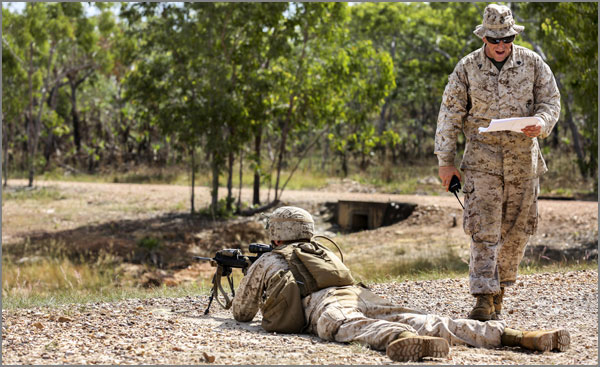America’s military presence is growing in Australia. That might not be a good thing.

THE US is strengthening a network of secretive military bases across Australia that could be used for waging wars against our interests, it was claimed at a weekend summit.
Instead of fostering crucial relationships, we are allowing the US to create enemies for us with its growing strategic presence on our soil, say the academics, politicians and campaigners who gathered for the Independent and Peaceful Australia Network (IPAN) conference attended by news.com.au in Alice Springs this weekend.
Under a burning hot sun in the red centre, experts and citizens shared their fears over what is happening in the most remote parts of the country. These mysterious bases may be invisible to the majority of us living in the most populated regions along the coast, but could threaten the fabric of all our lives. Here’s what you need to know:
NORTH WEST CAPE — SPACE WARFARE
Perhaps the most frightening of all the bases, North West Cape is at the cutting edge of warfare — in space.
The monstrous structure sits on the northwest coast of Australia, where kilometres of wire surround a soaring central tower and others fanning off it, sucking up huge amounts of electricity.
DARWIN — TROOPS ON THE GROUND
In 2011, President Barack Obama visited Darwin to announce US troops would begin making regular visits to the Northern Territory as part of the country’s “pivot” to the Asia-Pacific region.
The Gillard government agreed to the “permanent rotation of US marines and US air force aircraft”, meaning we have a constant flow of US soldiers on the ground in Australia. There are currently 1500, but this could rise to 2500.
It was this development that triggered the establishment of IPAN in 2012 as onlookers became alarmed at the move from “the invasion of nerd and computer freaks” to actual “troops in uniform with rifles”
PINE GAP — ‘THE POISONED HEART OF AUSTRALIA’
Pine Gap was established in Alice Springs in 1966 when the CIA came up with the idea of putting satellites 36,000 kilometres above the earth’s surface. These had giant antennae that could listen to very weak signals from Soviet missiles testing, allowing the agency to work out the capability of enemy weapons.
The spy base was placed in isolated Alice in the NT because at the time, the massive amount of data had to be collected over 130km of land.
OTHER BASES
The Defence Satellite Communication Station at Geraldton in Western Australia, along with Kojarena 20km inland, was one of Australia’s spy bases. It is now shared with two large American operational military communication systems that pull down information on Indonesian and Chinese satellites from the sky. This is part of the Five Eyes surveillance system used in Iraq and Afghanistan.
Kojarena is creating “battlefield conditions”, says Mr Doherty, providing data a soldier in Iraq can use to ascertain what’s behind a hill — the visual, weather and so on — making it “an American war fighting base”.
Australia paid $800 million for one of the satellites used by this system. But if America does not approve of an operation the Australian Defence Force requests, for example in Timor, it can turn off our access, says Prof Tanter.





